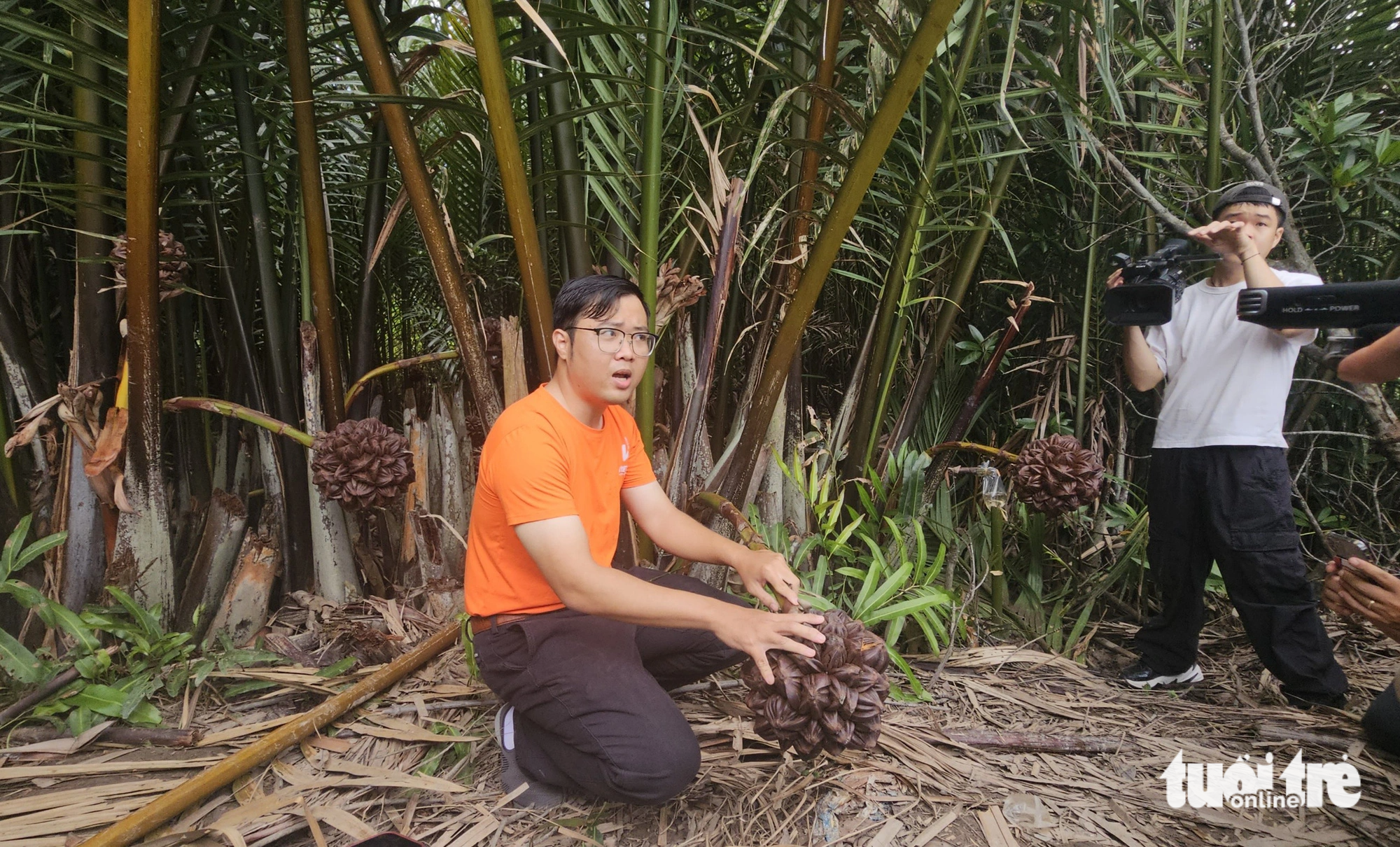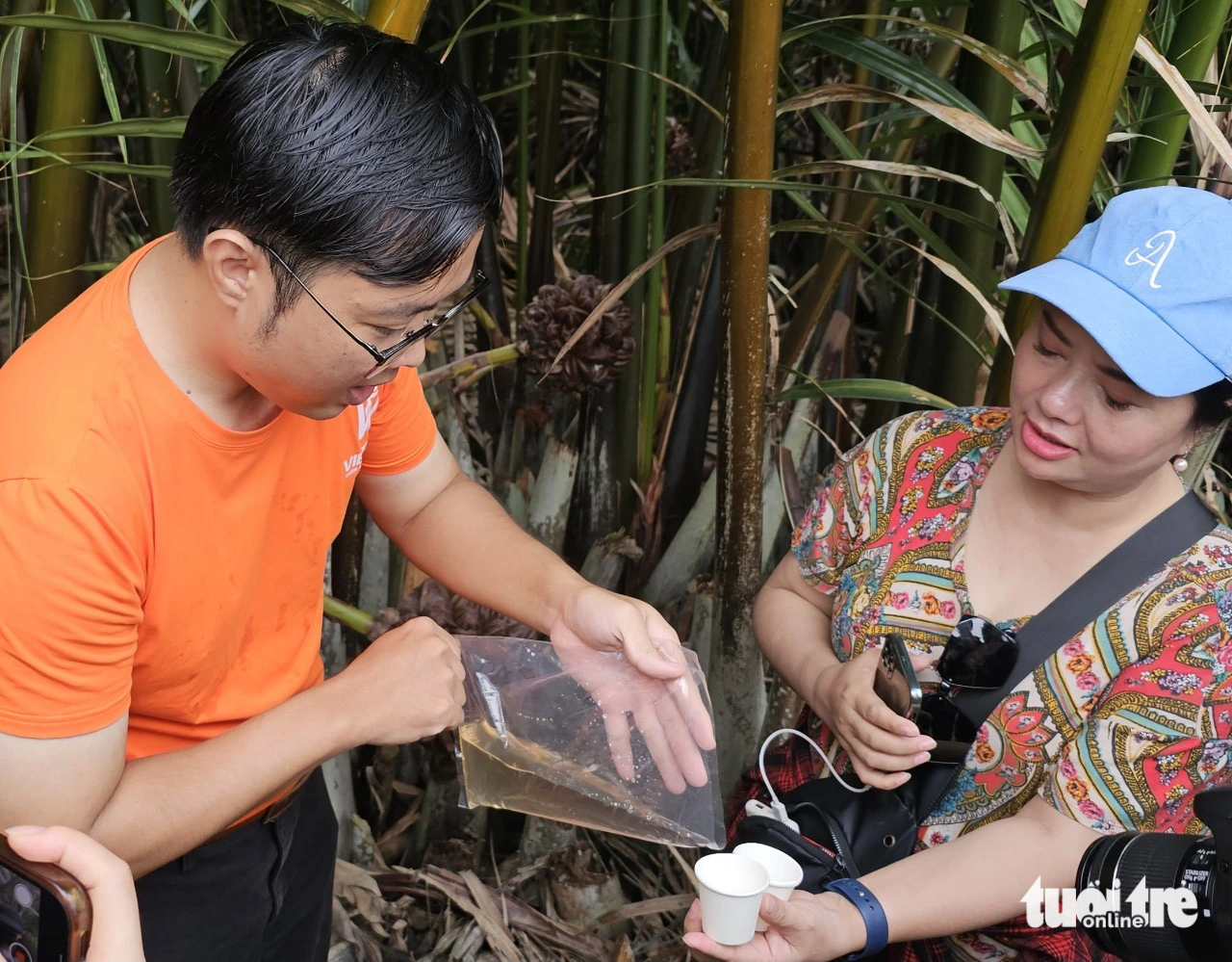A man from Can Gio District on the outskirts of Ho Chi Minh City collaborates with local farmers to introduce various high-value, delicious agricultural products made from nipa palm nectar after realizing the immense potential of nipa palm trees growing wild in the locality.
His school education and dedicated self-study over several years were the foundation for Phan Minh Tien to establish Vietnam Nipa Development Company Limited (Vietnipa).
In the past, the abundant nipa palm found in Can Gio District was primarily harvested for the flesh extracted from the fruit and leaves.
Tien was the one who pioneered the method for extracting nipa palm nectar and converting it into a range of high-value products.
To extract the nectar, farmers make a thin slice of two millimeters on the top of the stem, from which fruits and flowers have grown, so that the sap flows out continuously.
They employ a manual tapping technique, similar to a massage, to stimulate the secretion of the nectar.
Every coconut stem can yield approximately one liter of fresh nectar daily and can be tapped continuously for 30 days.
The harvested nectar is then processed to produce a variety of products, including dietary sugar and pure nectar juice.
On average, by exploiting one hectare of nipa palms each year, several metric tons of nipa palm sugar can be generated.
With appropriate harvesting and conservation techniques, the nectar collection period for nipa palms can extend up to 50 years after they mature in their fourth or fifth year.
“For every eight to nine liters of fresh nipa palm nectar, we can produce one liter of condensed nipa palm nectar, which serves as a natural sweetener, suitable for those looking to replace sugar and honey in their diets,” Tien explained.
“Notably, the condensed nipa palm nectar has a shelf life of up to one year when stored at room temperature, a crucial factor for further expansion and potential exportation.”
|
|
| Phan Minh Tien, director of Vietnipa, serves guests freshly-extracted nipa palm nectar. Photo: N.Tri / Tuoi Tre |
Vietnipa has obtained certifications for the International Organization for Standardization (ISO) quality management system and the Hazard Analysis & Critical Control Point (HACCP) food safety management system.
Its products, derived from nipa palm nectar, are available at over 400 retail locations across Vietnam and have garnered export orders from Europe and the U.S..
Tien noted that the exploitation of nipa palm nectar has led to a 10-12-fold increase in farmers’ income compared to their previous earnings, averaging around VND10 million (US$406) per person per month.
Nipa palms have also contributed to the creation of a diverse ecosystem beneath their canopies, thereby improving the environment.
Starting with just one hectare of nipa palm cultivation, Tien revealed that he has since established connections with other local farmers, expanding the harvesting area to over 10 hectares.
However, this expansion pales in comparison to the abundance of available raw nipa palms.
“In Can Gio District alone, there are approximately 900 hectares of nipa palms, with the majority growing in the wild,” Tien emphasized.
“When considering the entire Mekong Delta region, the potential extends to over 9,000 hectares.
“Nature has endowed us with this vast reservoir of raw materials, and if harnessed effectively, it holds tremendous economic value.”
Like us on Facebook or follow us on Twitter to get the latest news about Vietnam!


















































